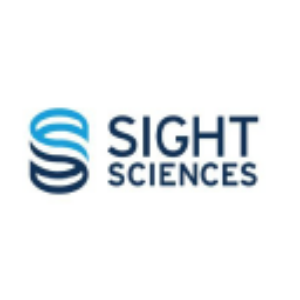Sight Sciences Two Year Multicenter Study Results Show Sustained Reductions in Both Intraocular Pressure (IOP) and Glaucoma Medication Use in Mild-Moderate Primary Open Angle Glaucoma Patients Treated with a Procedure Enabled with the OMNI® Surgical System Technology
Retrospective Clinical Data from Seven US Sites Published in Clinical Ophthalmology
- Sustained and clinically meaningful IOP reductions observed at 12 months persisted through 24 months
- Sustained and clinically meaningful reductions in glaucoma medication use observed at 12 months also persisted through 24 months
- Confirmed safety and efficacy of OMNI Surgical System technology in both standalone and combination cataract procedures
- Longest published multicenter clinical results of OMNI Surgical System to date
MENLO PARK, Calif., May 23, 2023 (GLOBE NEWSWIRE) -- Sight Sciences, Inc. (Nasdaq: SGHT), an eyecare technology company focused on creating innovative solutions intended to transform care and improve patients' lives, today announced the publication of two-year results of the ROMEO (Retrospective, Observational, Multicenter, Evaluation of OMNI) study in Clinical Ophthalmology. The longest multicenter study of the OMNI® Surgical System technology to date in both standalone and combination-cataract surgery demonstrated that the significant reductions in IOP and medication usage observed at 12 months were also witnessed at 24 months. In addition, there were no serious or unanticipated adverse events during the length of the two-year study.
"This longer-term data set representing patients treated at multiple centers throughout the country both at the time of cataract surgery and as a standalone treatment should give eye surgeons even greater confidence about the safety and durability of efficacy of the OMNI Surgical System technology," said Blake Williamson, MD, of The Williamson Eye Center in Baton Rouge, LA, and a principal investigator of the study. "Knowing that OMNI maintains effectiveness through two-years, and beyond, is very reassuring, not only to me, but also to my patients."
Sites participating in this extension study accounted for 86 percent of eyes enrolled in the original ROMEO study from seven multi-specialty ophthalmology practices in six states (Arkansas, California, Kansas, Louisiana, Missouri, and New York). Patients with mild-moderate glaucoma received outflow restorative procedures enabled with the OMNI Surgical System technology either at the time of cataract surgery (n = 43) or as a standalone treatment (n = 29). Patients were divided into high baseline IOP (pre-operative IOP > 18 mmHg, n = 34) and low baseline IOP cohorts (pre-operative IOP ≤ 18 mmHg, n = 38). Average IOP in the high baseline IOP cohort fell
"This newest two-year follow-up data from the ROMEO study demonstrates that restorative outflow procedures with our OMNI technology continue to provide consistent and long-term lowering of IOP and glaucoma medication use when performed at the time of cataract surgery and as a standalone treatment," said Paul Badawi, co-founder and CEO of Sight Sciences. "We plan to share additional clinical data that will further illustrate the long-term benefits of our OMNI technology over the coming years."
The OMNI Surgical System enables surgeons to provide minimally invasive, implant-free surgery to reduce intraocular pressure (IOP) in adults with primary open-angle glaucoma. The procedure intends to restore outflow by targeting all three known points of resistance in the aqueous outflow system: the trabecular meshwork, Schlemm's canal, and the collector channels. It can be used before, in combination with, or following cataract surgery.
The study, Canaloplasty and Trabeculotomy with the OMNI System in Patients with Open-Angle Glaucoma: Two-Year Results from the ROMEO Study, was published this month in Clinical Ophthalmology can be found at https://www.ncbi.nlm.nih.gov/pmc/articles/PMC10086214.
About Sight Sciences
Sight Sciences is an eyecare technology company focused on developing and commercializing innovative solutions intended to transform care and improve patients' lives. Using minimally invasive or non-invasive approaches to target the underlying causes of the world's most prevalent eye diseases, Sight Sciences seeks to create more effective treatment paradigms that enhance patient care and supplant conventional outdated approaches. The Company's OMNI® Surgical System is a minimally invasive glaucoma surgery (MIGS) technology indicated to reduce intraocular pressure in adult patients with primary open-angle glaucoma (POAG), the world's leading cause of irreversible blindness. The SION™ Surgical Instrument is a bladeless, manually operated device used in ophthalmic surgical procedures to excise trabecular meshwork. In addition, the Company's TearCare® System technology is 510(k) cleared in the United States for the application of localized heat therapy in adult patients with evaporative dry eye disease due to meibomian gland dysfunction (MGD), enabling office-based clearance of gland obstructions by physicians to address the leading cause of dry eye disease.
Visit SightSciences.com for more information.
About the OMNI Surgical System
The OMNI® Surgical System technology is a handheld, single-use therapeutic device for minimally invasive glaucoma surgery (MIGS). OMNI allows surgeons to access 360 degrees and three primary points of resistance of an eye's diseased conventional outflow pathway (trabecular meshwork, Schlemm's canal, and collector channels) through a single clear corneal microincision.
OMNI's FDA-cleared indication is for canaloplasty (the microcatheterization and viscodilation of Schlemm's canal) followed by trabeculotomy (the cutting of trabecular meshwork) to reduce intraocular pressure in adult patients with primary open-angle glaucoma. OMNI has a CE Mark for the catheterization and transluminal viscodilation of Schlemm's canal and the cutting of trabecular meshwork to reduce intraocular pressure in adult patients with open-angle glaucoma.
OMNI should not be used in any situations where the iridocorneal angle is compromised or has been damaged since it may not be possible to visualize the angle or to properly pass the microcatheter. Do not use the OMNI in patients with angle recession; neovascular glaucoma; chronic angle closure; narrow-angle glaucoma; traumatic or malignant glaucoma; or narrow inlet canals with plateau iris or in quadrants with previous MIGS implants.
OMNI technology is protected by a global patent portfolio including 32 issued patents worldwide. OMNI is a registered trademark of Sight Sciences.
Visit www.OMNIsurgical.com for more information.
© 2023 Sight Sciences. All rights reserved.
Media contact - Glaucoma
Carmen Caricchio
C2M Group
pr@SightSciences.com
Investor contact
Philip Taylor
Gilmartin Group
415.937.5406
Investor.Relations@Sightsciences.com








